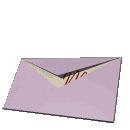Conjunction Study Notes
Subordinating conjunctions:
Introduces subordinate clauses – that is these conjunctions join the dependent part of a sentence to the main part of the sentence. The main part is known as the main clause.
It is a complete sentence by itself.
Types of clauses:

(He told me. He waited at the bus stop for a long time)
The sentences have been joined by the conjunction ‘that’ and when you ask the question, ‘WHAT?’ to the verb (told) in the first sentence we get the answer which is the second sentence. Thus this second sentence is known as the noun clause.

(I am sure. The pink nail varnish will look nice.)
Sure what? That the pink nail varnish will look nice = noun clause.
Examples:

(He asked me. I had given the card to mother)
Asked what? If I had given the card to mother = noun clause

(Mother was not sure. She had added the salt)
Not sure (of) what? Whether she had added the salt = noun clause.
Subordinating conjunctions introducing adverb clauses:
Answer the question WHEN? Introduced by words like when, while, before, as soon as, after, etc.
Examples:

(The children were quiet. They were listening to the story)
The word ‘WHEN’ tells you the exact time of the children being quiet. Hence ‘When they were listening to the story’ = adverb clause of time.
(were quiet WHEN? When they were ….......... to the story = adverb clause of time)

(The telephone rang suddenly. Mother was cooking)
Rang when? While mother was cooking. = adverb clause of time.

(We can leave. It stops raining)
Can leave WHEN? As soon as it stops raining = adverb clause of time)
Tell us why a certain thing has happened. Introduced by the words – because – as – since. Answer the question WHY?
Examples:

(That bird is very attractive. It has vivid colours)
Is attractive WHY? Because of its vivid colours = adverb clause of reason

(They are carrying a lot of luggage. They have gone for a month.)
Carrying WHY? Since they have gone for a month = adverb clause of cause
Tells us about the condition that has to be fulfilled. Introduced by the words – if – unless – provided. These clauses answer the question ‘ON WHAT CONDITION?’
Examples:

(You can go for a movie. You finish your work)
Go ON WHAT CONDITION? If you finish your work = adverb clause of condition.

(One cannot have education. One does not go to school.)
Cannot have ON WHAT CONDITION? Unless one goes to school = adverb clause of condition
Final result not according to what is expected.
Introduced by the words – though – although – however – even if – yet
Examples:


Adverb clause of purpose:
Tells us about the purpose behind the action. The conjunctions ‘so that’ introduces this clause and joins it to the main clause.
Examples:

(The girl prays daily. God may take care of her.)
Purpose for praying daily = God may take care of her = adverb clause of purpose.

(He announced it on the megaphone. Everyone heard it well)
Purpose for announcing = everyone heard it well = adverb clause of purpose.
Click here for Exercise-1